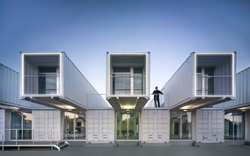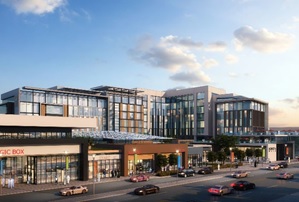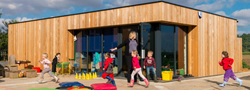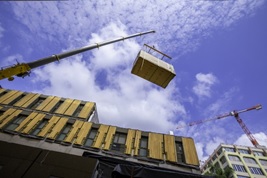In the world of construction, innovation is key to addressing the challenges of time, cost, and sustainability. One such innovative method gaining traction is modular construction. But what exactly is modular construction, and how does it differ from traditional building methods?
What is Modular Construction?
Modular construction involves the use of prefabricated building modules, constructed in a factory setting, and then transported to the construction site for assembly. This method contrasts sharply with traditional construction, where buildings are erected piece by piece on-site. The modular approach is synonymous with efficiency, speed, and a commitment to sustainability.
Advantages of Modular Construction
1. Speed and Efficiency:
One of the most significant advantages of modular construction is the reduced build time. Since modules are prefabricated in a controlled environment, construction can proceed without delays caused by weather or other on-site issues. Projects that might take many months to complete using traditional methods can often be finished in a matter of weeks.
2. Cost Savings:
By streamlining the construction process and reducing the time spent on-site, modular construction can lead to substantial cost savings. Lower labor costs, reduced waste, and the ability to bulk-purchase materials all contribute to more affordable building projects.

3. Environmental Sustainability:
Modular construction is inherently more sustainable. Factories can optimize material usage and reduce waste significantly compared to traditional construction sites. Additionally, the ability to reuse and relocate modular buildings means less environmental impact over the lifespan of the structure.
4. Flexibility in Design:
Modern modular construction is incredibly versatile. Prefabricated modules can be configured to suit a wide range of designs and purposes, from residential homes to commercial buildings, hotels, and more. The flexibility in design allows for customized solutions that meet specific needs and aesthetic preferences.
5. Consistency and Quality Control:
Building modules in a factory setting allows for stringent quality control processes, ensuring that each unit meets high standards before it reaches the construction site. This consistency is harder to achieve with on-site construction, where variables such as weather and site conditions can affect quality.
Ideal Applications for Modular Construction
Residential Projects:
For individuals looking to build homes quickly and efficiently, modular construction offers a practical and attractive solution. From small, single-family homes to larger multi-family units, the modular approach can cater to various residential needs.
Commercial Buildings:
Businesses can benefit from the speed and flexibility of modular construction. Whether it’s an office building, retail space, or a hotel, modular construction allows for rapid expansion and adaptation to changing business needs.

Educational and Healthcare Facilities:
Schools and hospitals often face the need for quick expansion to accommodate growing populations. Modular construction provides a fast and reliable way to add classrooms, offices, and healthcare spaces without the long timelines associated with traditional builds.
Getting Started with Modular Construction
If you’re considering modular construction for your next project, it’s essential to start with a clear understanding of your needs and goals. Consulting with experts in modular construction can help you navigate the various options and configurations available, ensuring that your project is both successful and sustainable.
Modular construction represents a significant shift in how we think about building. Its advantages in speed, cost, sustainability, and design flexibility make it an increasingly popular choice for a wide range of projects. As the demand for efficient and eco-friendly construction solutions continues to grow, modular construction is poised to become a cornerstone of the future building landscape.
Looking for Financing?
Whether your project is modular or traditional, Seaport Credit Canada is the financial alternative you’re looking for. We provide flexible financing solutions tailored to meet the unique needs of your construction project.



